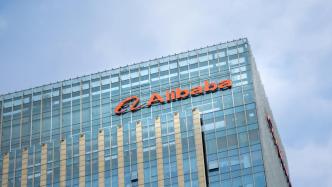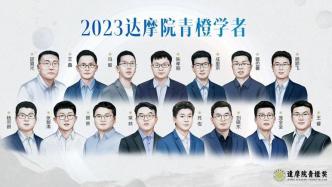
"I guide students at Peking University, and I won't tell them, come to me to learn algebra, I will ask, what kind of mathematics do you like, applied or pure? The most important thing in mathematics is interest, and what is your interest? The most important driving force that supports us to go forward.”
"The daily life of doing mathematical research is to walk between dead ends and dead ends, but in the process, you will gain a lot of joy that can make people 'wow'." Chen Zekun, a doctoral student at Peking University's Beijing International Mathematical Research Center, said.
On September 26, the list of winners of the 2022 Alibaba Global Mathematics Competition was announced, with a total of 77 winners. This competition attracted more than 55,000 people from dozens of countries, and over 50% of the final winners were born in 2000. These are known as the youngest "mathematics new generation" in the history of the competition, and will share the prize of more than 4 million yuan.
This year's four Gold Cups were won by Lu Weixiao and Yao Yuan from MIT, Rao Zhenghao from Brown University, and Chen Zekun from Peking University. The average age of the four Gold Medal winners is 25, and they are all pursuing PhDs in mathematics.
At the beginning of the 21st century, a group of outstanding young people appeared in the Chinese mathematics community, such as Liu Ruochuan, Liu Yifeng, Xiao Liang, Xu Chenyang, Yuan Xinyi, etc. from the School of Mathematical Sciences of Peking University. It is known as the "Golden Generation" of Chinese mathematics.
Today, 20 years later, the disciples of the "Golden Generation" have also begun to show their edge. Liu Ruochuan's student Chen Zekun won the gold medal in this competition; Xiao Liang's student, Qu Xiaoyu, who was only 16 years old, won the Excellence Award in this competition and became the youngest winner in the four sessions.
Xiao Liang, one of the representatives of the "Golden Generation" and a professor at the School of Mathematical Sciences at Peking University, found that in recent years, the pure love and pursuit of mathematics has become more and more evident in the new generation, who no longer regard mathematics competitions as As a springboard for further studies, some hope to continue to study basic mathematics, and some hope to combine mathematical research with other scientific problems to open up a broader sky for the application of mathematics, which makes him very gratified. As an educator, he feels that mathematics is a heritage, and the teaching of mathematics is a responsibility. Pedagogy is not only to study problems in schools or participate in competitions, but also to pass on the mission and spirit of one generation to the next generation.
Recalling his undergraduate degree, Xiao Liang said that the world at that time was relatively closed, and most of the students did not know what mathematics was. There are more exchanges and more autonomy in the direction of future research. "I guide students at Peking University, and I won't tell them, come to me to learn algebra, I will ask, what kind of mathematics do you like, applied or pure? The most important thing in mathematics is interest, and what is your interest? The most important driving force that supports us to go forward.”
Mathematics is the foundation of all natural sciences and a powerful engine of scientific and technological progress. Research on cutting-edge technologies such as cloud computing, artificial intelligence, chips, and quantum computing is inseparable from mathematics.
It is understood that the Alibaba Global Mathematics Competition is guided by the China Association for Science and Technology, and jointly organized by Alibaba Public Welfare and Dharma Institute. Since it was held for four years, it has attracted nearly 200,000 mathematics enthusiasts from more than 70 countries and regions around the world to participate. In 2022, the competition will increase the prize money for the first time, increasing the total prize money from 1 million to more than 4 million yuan. The winners of gold, silver, bronze and excellence awards will each receive US$40,000, US$20,000, US$10,000 and US$5,000.
